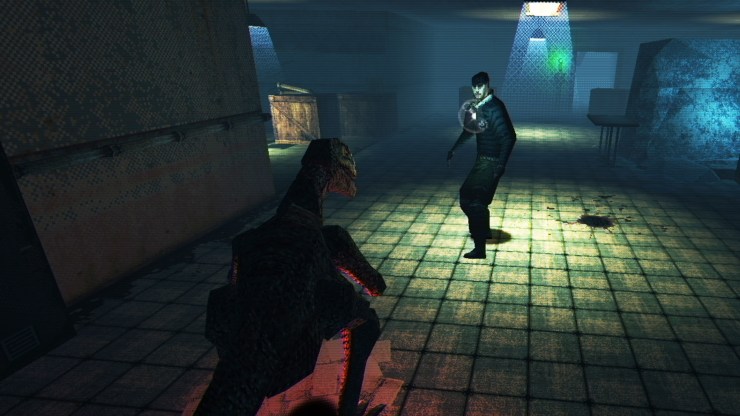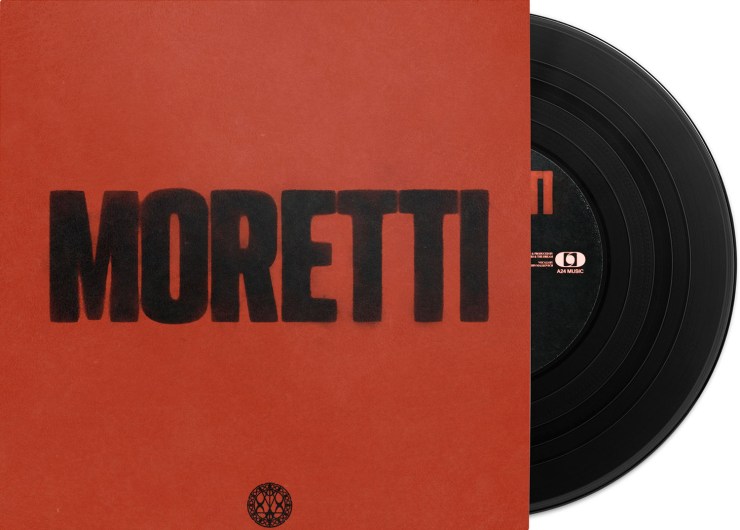Dennis Donnelly’s The Toolbox Murders (1978) feels like it wants to be Los Angeles’ The Town That Dreaded Sundown. The film shares traits with slashers of the 1970s, specifically the voyeurism of Bob Clark’s Black Christmas or John Carpenter’s Halloween, but primarily aims for that seedy, regional true crime infamy. The climax even concludes with a text blast that claims the pictured events are based on an actual 1967 case, but there’s no concrete evidence. It’s sensationalized violence that slaughters wide-eyed, hopeful Hollywood starlets, feeding off commentary about Los Angeles’ immoral aura and sleazy showbiz practices.
Producer Jacqueline Quella acquired the remake rights for The Toolbox Murders, but she apparently refused to finish Donnelly’s version, calling it “terrible” and “misogynistic” (as per exclusive DVD interviews). She strived to be better than Donnelly’s appalling torture of women for kicks, which became writers Jace Anderson and Adam Gierasch’s problem. It’s a strange choice, really—why remake a film you detest? That’s the worst possible approach a remake can take, pitting itself as competition instead of a companion watch or technological update.
Yet, here we are.
The Approach

‘The Toolbox Murders’ (1978)
The late legendary Masters of Horror Tobe Hooper was selected to helm a 2000s update of The Toolbox Murders. Coincidentally, original producer Tony DiDio was inspired by Hooper’s insta-classic The Texas Chain Saw Massacre—notably, its financial success. He wanted to gamble on releasing his own low-budget horror film, trying to copy Leatherface’s debut without blatant plagiarism. DiDio probably would never have guessed Hooper would eventually remake his cheapo horror flick, or how far Hooper’s redo would divert from its source, because there’s hardly any shared DNA (on purpose).
Anderson and Gierasch retain the bare minimum ingredients for a “Toolbox Murders” storyline. There’s a toolbox, there’s a killer, and a Los Angeles apartment complex. Otherwise, Toolbox Murders (2004) is about a building shrouded in occultist magic and a disfigured psychopath living in the walls referred to as “Coffin Baby” (because he supposedly clawed his way out of his deceased mother’s womb). Coffin Baby kills with no remorse or prejudice, becoming this nightly specter who strikes with intense aggression like any other 2000s-amped slasher prototype. The writers strip away the Kingsleys’ delirious “misogyny” from the first film, and substitute the most generic, squeezed-from-a-tube filler in the form of just another murderous freak.
Angela Bettis stars as Nell Barrows, a teacher who relocates to Los Angeles for her medical school student partner, Steven (Brent Roam). They’re Lusman Arms’ newest tenants, an under-renovation building that’s barely up to code with its electrical shorts, peeling wallpaper, and other architectural decay. Nell, who’s left home alone due to Steven’s erratic hours, hears screams and noises from other units that instigate a constant paranoid state. Nell’s instincts are right, of course, even though she has no idea her neighbors are being brutally executed by a balaclava-wearing sicko (Sheri Moon Zombie gets hammered to death during the cold open). With no support or reassurance, Nell investigates the secrets of Lusman Arms—including builder Jack Lusman’s dark spiritualist history—and hunts for a hidden townhouse that turns out to be Coffin Baby’s lair of a thousand corpses.
Does It Work?

‘Toolbox Murders’ (2004)
If you told me Hooper’s Toolbox Murders was a Nu-Horror Psycho wannabe born from its own ideas, I’d believe you. It’s a standalone that truly stands alone, giving “I don’t know her” vibes with a sneer. Anderson and Gierasch successfully pen a brand new plot around this facially disfigured Coffin Baby, who is now an equal opportunity slasher. Quella’s disdain for Donnelly’s perceived tits-and-gore shallowness informs a concept where buildings come alive and Los Angeles’ lowliest dreamers are doomed by their ambitions. By these terms, I’ll concede Toolbox Murders (2004) is one of the more freely creative remakes out there.
That said, as a remake, Hooper fails to reanimate even a glimmer of nostalgia for 1978’s uncomfortably vulnerable skin-and-chills flick. Whether intentional or not, it’s a lazy use of acquired rights. Anyone can repurpose name recognition for a project that has no relevance outside an off-the-rack costume and geographic location. What’s more impressive is something like Danishka Esterhazy’s Slumber Party Massacre (2021), which rewrites the original’s industry-bred misogyny into a hilarious satire that isn’t afraid to cherish what exists, but also hold certain aspects accountable (with love). That’s infinitely more interesting than disengagement, because a ski mask and power tools are the least unique elements of The Toolbox Murders (1978).
Frankly, it’s a piss-poor remake that leaves a head-scratching aftertaste. What’s introduced anew all play like downgrades, and there’s no familiarity to grasp. It’s a bad film on its own merits, which only damages the original’s reputation—a false reputation based on entirely different concepts. Anyone turned off by Toolbox Murders (2004) will have no desire to check out the ’70s version, presuming it’s also a cockamamie ghost story. Likewise, fans of Donnelly’s gruesome tale of slain damsels and a kidnapped teen will feel betrayed by Hooper’s 2000s remix, which lacks meaningful adherence to established (albeit separate) canon.
The Result

‘Toolbox Murders’ (2004)
Toolbox Murders (2004) is not only a throwaway remake, but it’s also a flat-out awful experience. It’s one of Hooper’s worst releases; a slapdash and incomplete attempt to recreate the grit and inhumanity of The Texas Chain Saw Massacre. Wasted are the dilapidated conditions of the Lusman Arms grounds, which do set a haunted-as-heck, “Tower of Terror” vibe with all the flickering lights and crumbling interiors. There’s nothing exceptional about yet another gorefest that’s got some gnarly kills to brag about but technical flaws like a Willard-sized rat infestation. Plenty of 2000s horror remakes didn’t get their due upon release—Hooper’s rental catastrophe ain’t one of ’em.
Hooper’s vision matches most aughts remakes, meeting the upped ferocity of Platinum Dunes productions, or delving into the abhorrent meanness (in terms of themes) of a title like Black Christmas (2006). It’s also frustratingly dunderheaded, especially given how choppy cuts that feel like a record skip between scenes become. If internet lore is correct, Hooper’s shoot ended prematurely due to one of the listed production companies going under, which stinks—but doesn’t excuse nonsense logic paths. Editor Andrew Cohen struggles to piece together a Coffin Baby branded puzzle of scenes that’s missing crucial pickups, while Hooper does nothing to challenge horror tropes, like moronic LAPD officers who can’t find a nearly-dead musician nailed to her ceiling. Sure, the 2000s weren’t a gold mine for impenetrable horror scripts, but Toolbox Murders (2004) is an especially deflated narrative that continually tries to justify its own nonsense.
For all that talk about Donnelly’s perverse softcore mentality, Nell’s struggles within Lusman Arms don’t escape a whole lotta male bullshit (sans gaze). Nell’s fractured psyche is a result of Steve constantly leaving her stranded in a crummy apartment and his constant belittling of her fears. Then there’s Nell being saved partly by the horny cyber peeper next door, who produces Coffin Baby evidence only because he’s spying on Juliet Landau’s hottie next door, Julia, through his webcam. In The Toolbox Murders (1978), there’s a plot-driven motivation behind all the creeping on women through windows and emphasis on sexual gratification behind closed doors. If anything, Donnelly is better aware of the stance his film is taking on gendered inadequacies than the braindead speedrun of yet another upset woman who cries wolf too many times and almost gets table-sawed in half as a result. It’s all so … boring and predictable.
The Lesson

‘Toolbox Murders’ (2004)
If you’re going to try to outshine an original with your remake, you’d better bring your A++ game. Toolbox Murders (2004) does not, and looks foolish as a result. Hooper’s downpour of violence inside what was meant to be a luxury getaway for Hollywood’s brightest stars is a rigid progression through straight-to-video horror tropes that, forgive me, appear amateurish. Hooper’s legacy as an influential genre figure is not evident in this ill-informed remake, despite the inclusion of a corpse maze during the finale. You come at the king, as they say, you best not miss.
● Maybe starting from a place of disgust is the wrong approach to a remake, even as a producer.
● Even the greatest minds in horror storytelling can’t salvage a clunky screenplay.
● Whether or not there are production issues, even ones severe enough to cut schedules short, all that matters is what’s shown to the audience.
● There’s a fine line between bringing originality to a remake and leaving the source material behind without any care.
Here’s the thing: The Toolbox Murders (1978) isn’t even a particularly great film itself. Everything with Uncle Vance and Kent at the end is skeevy, succumbs to overuse, and throws the whole slasher element into a weird funk. That said, Donnelly is confident in the film’s messages and at least goes headfirst into this exploitation-y fever-dream about an old man trying to “rescue” young girls from impurity. Hooper doesn’t display that same tenacity, pushing through arthritic motions to reach the next graphic demise. It’s a wild one, but disappointingly, for all the wrong reasons.
The post ‘The Toolbox Murders’ – When a King of 1970s Horror Remade a 1970s Horror Movie in 2004 appeared first on Bloody Disgusting!.


